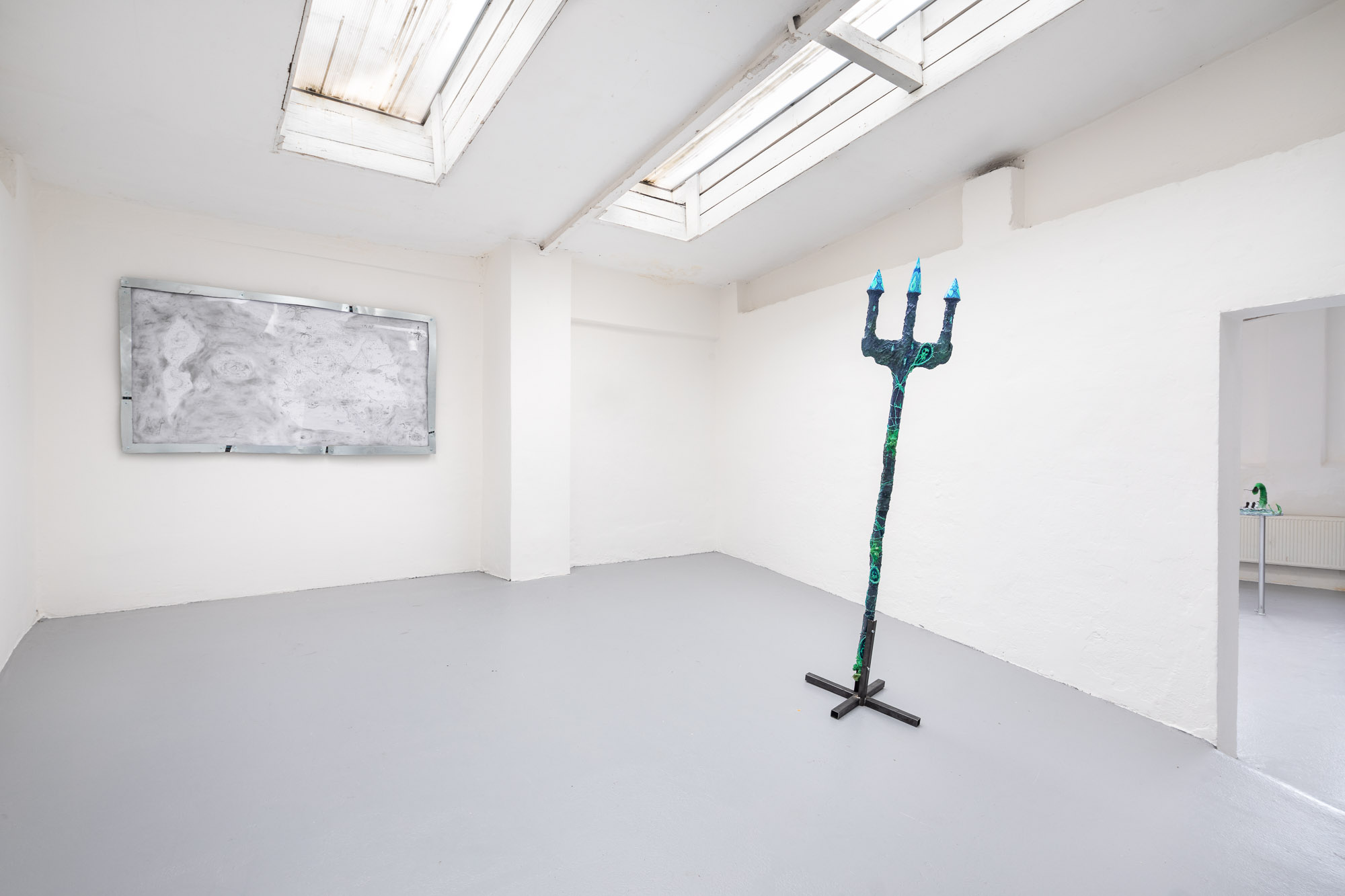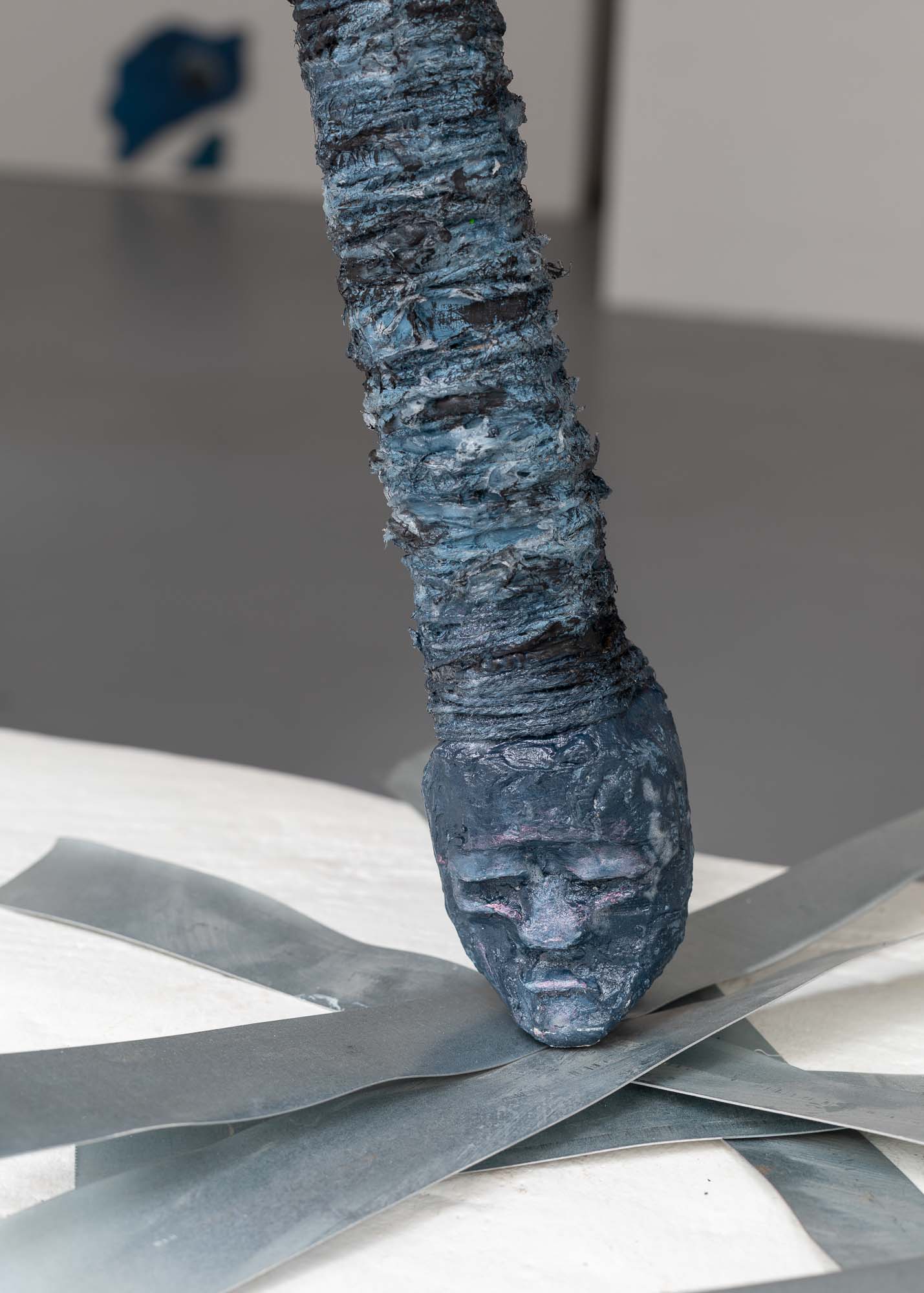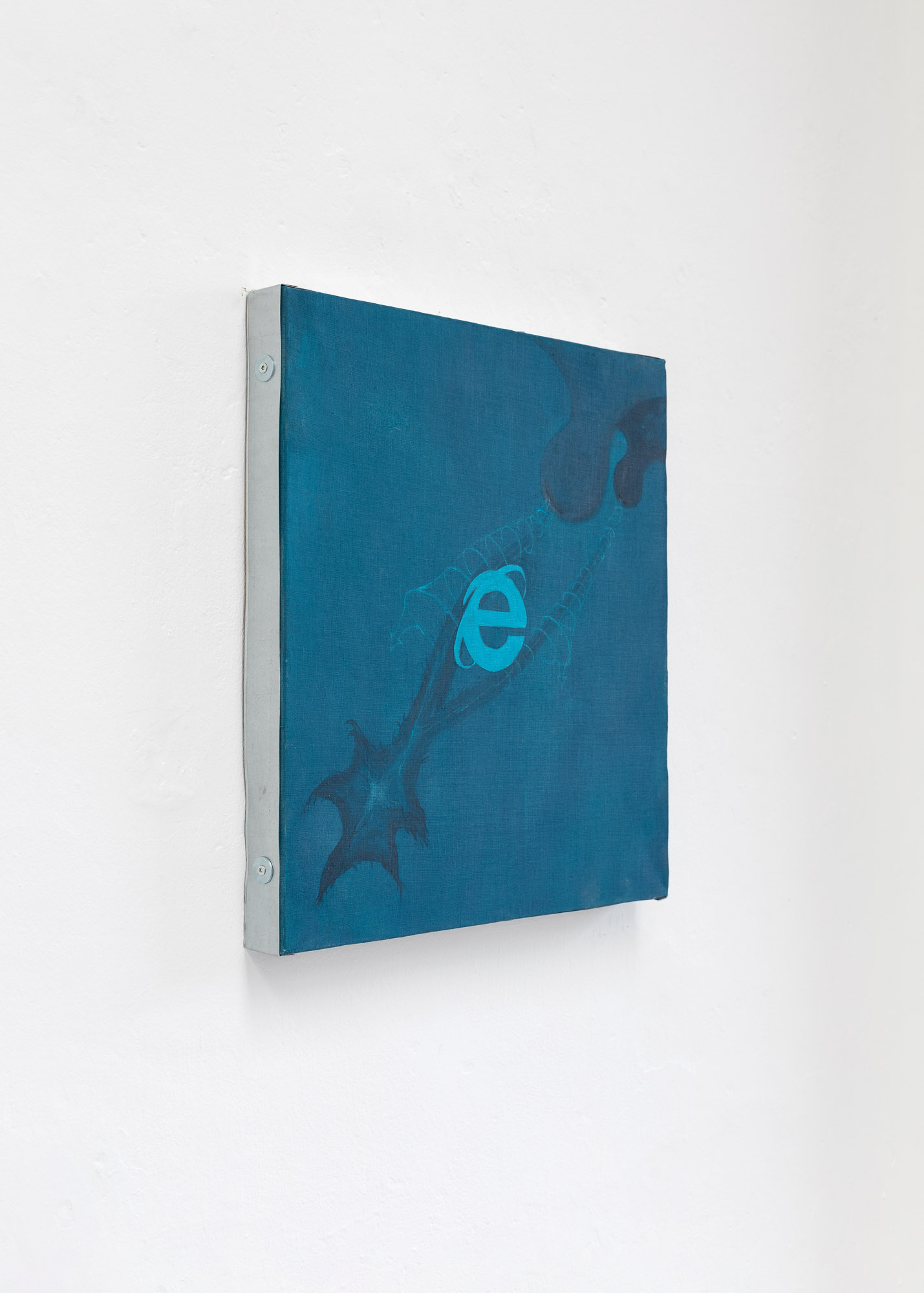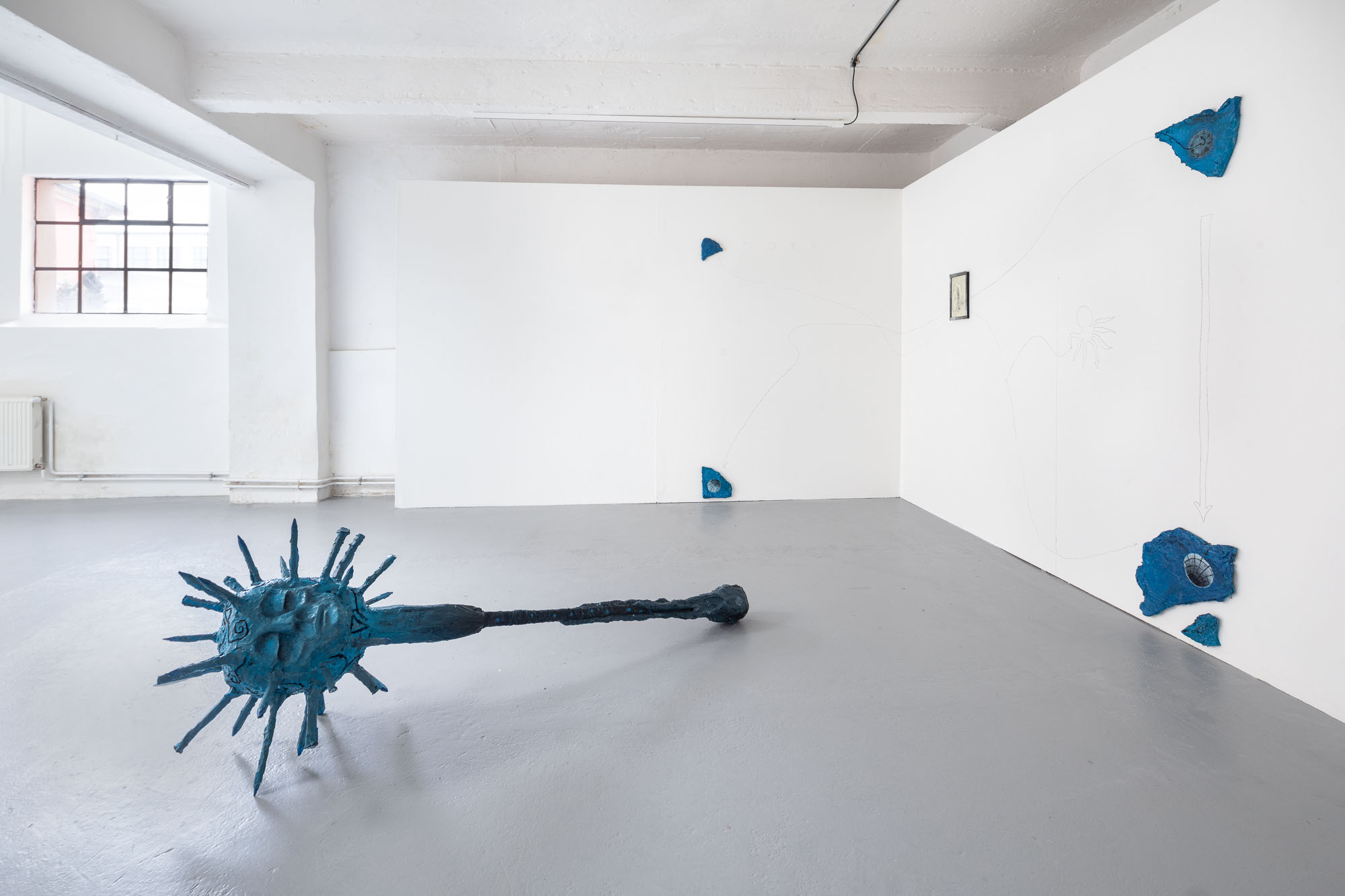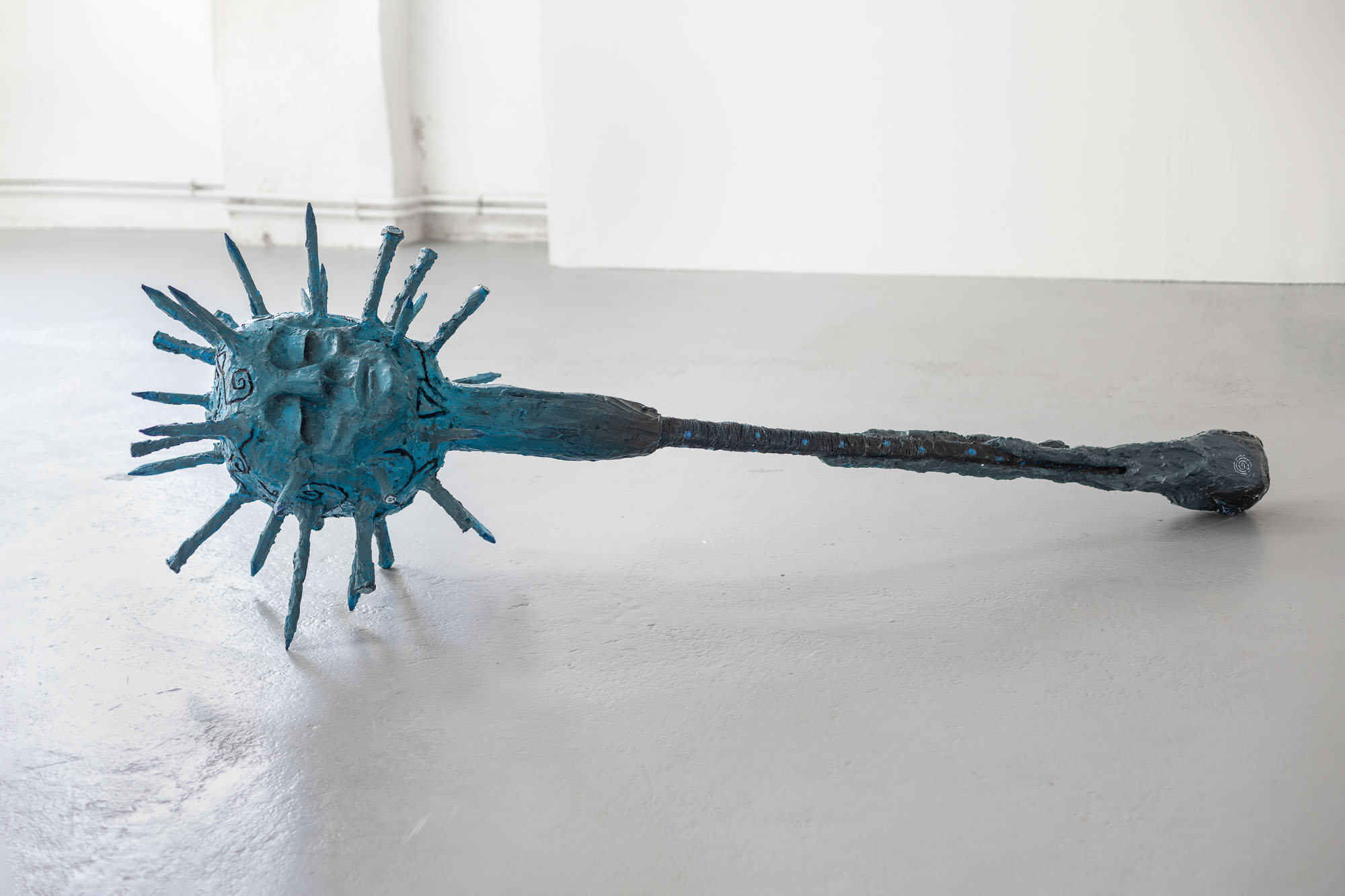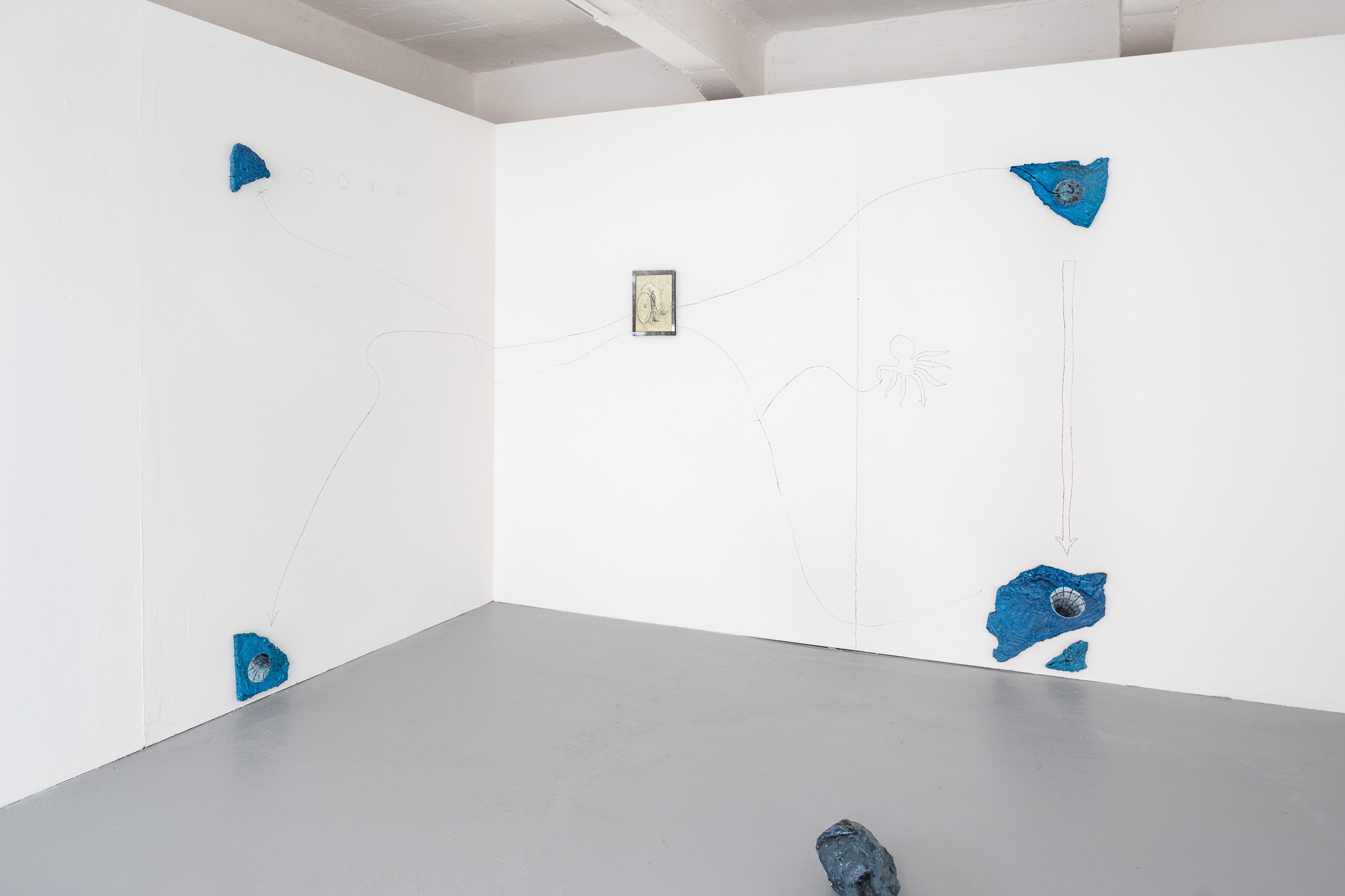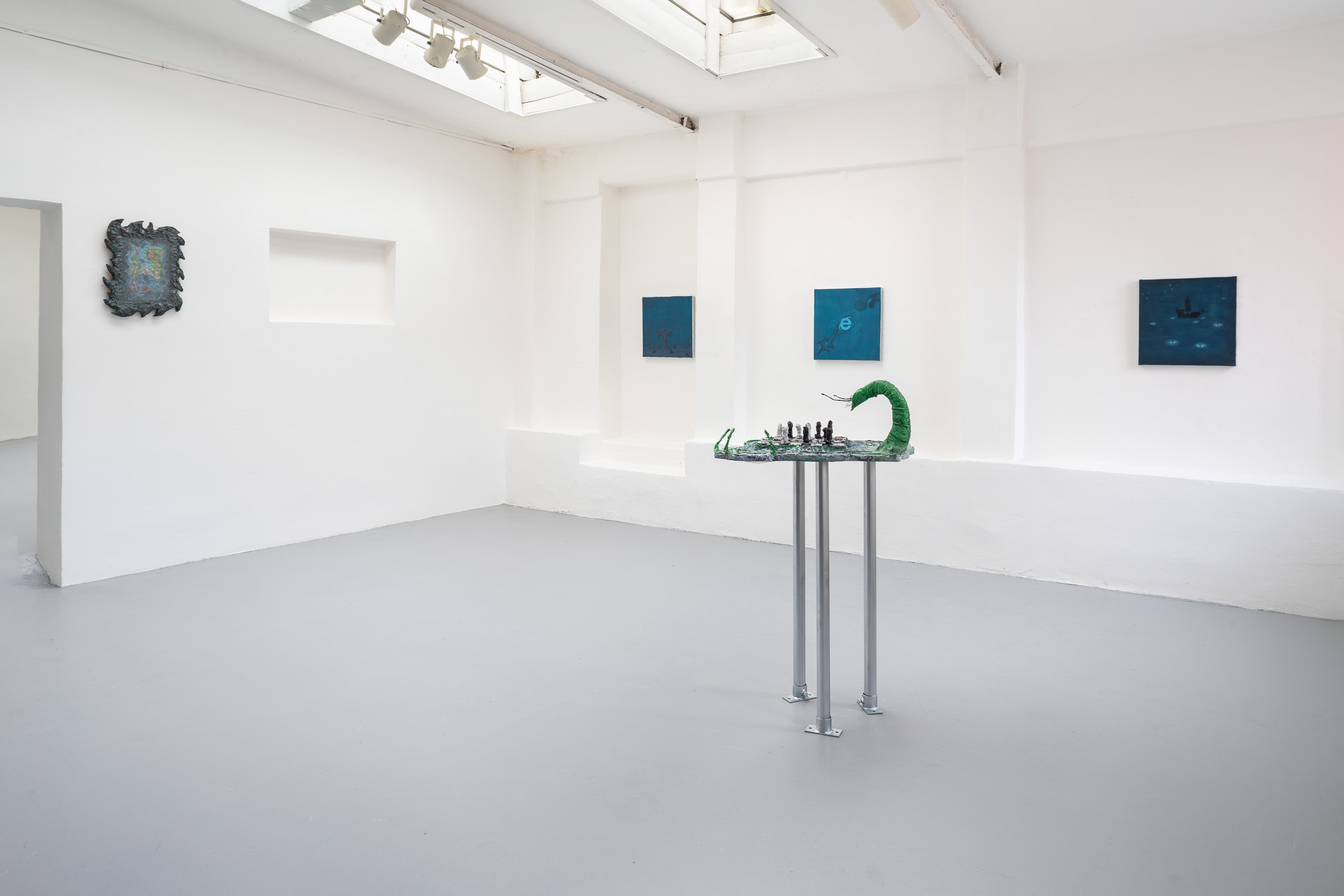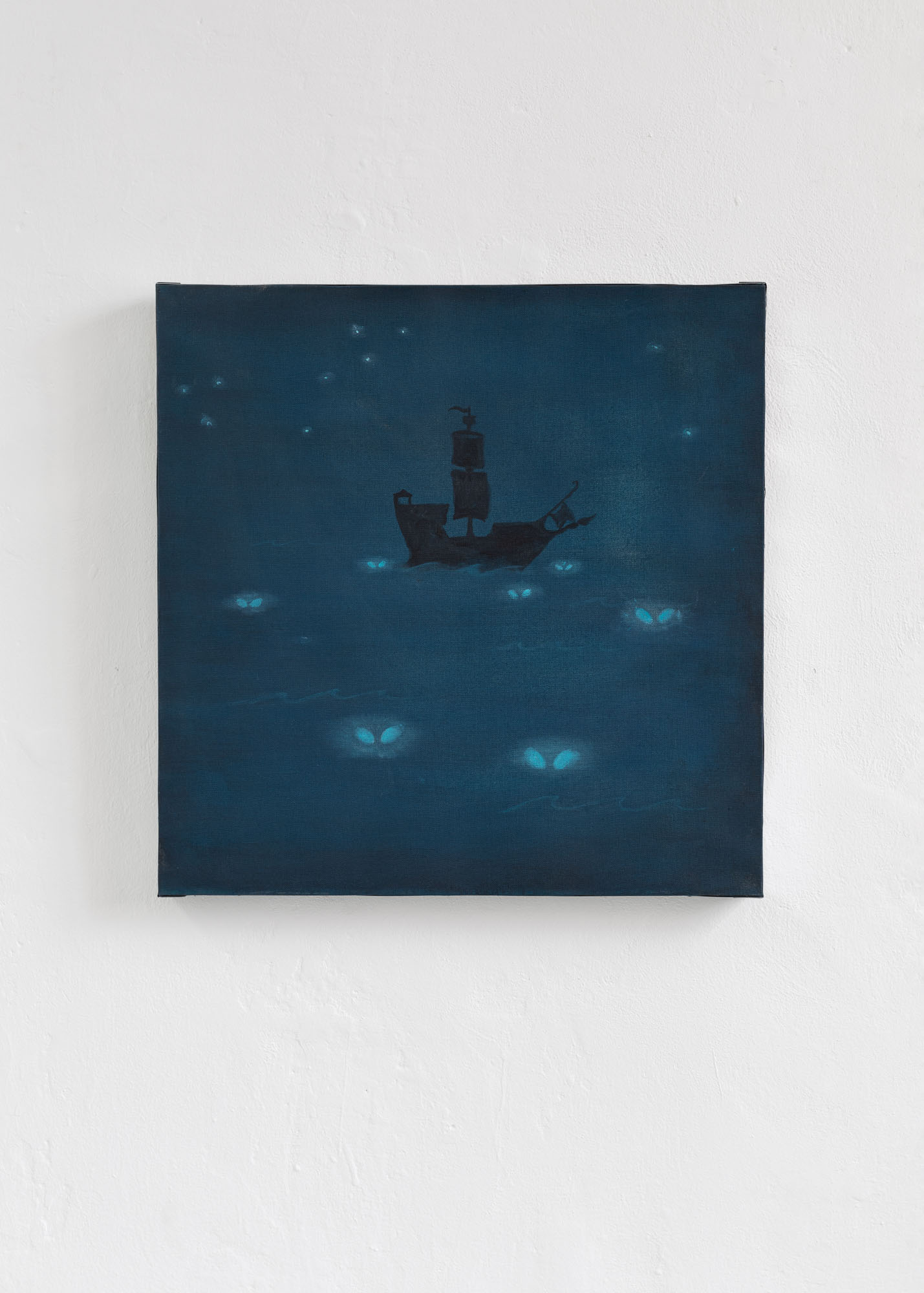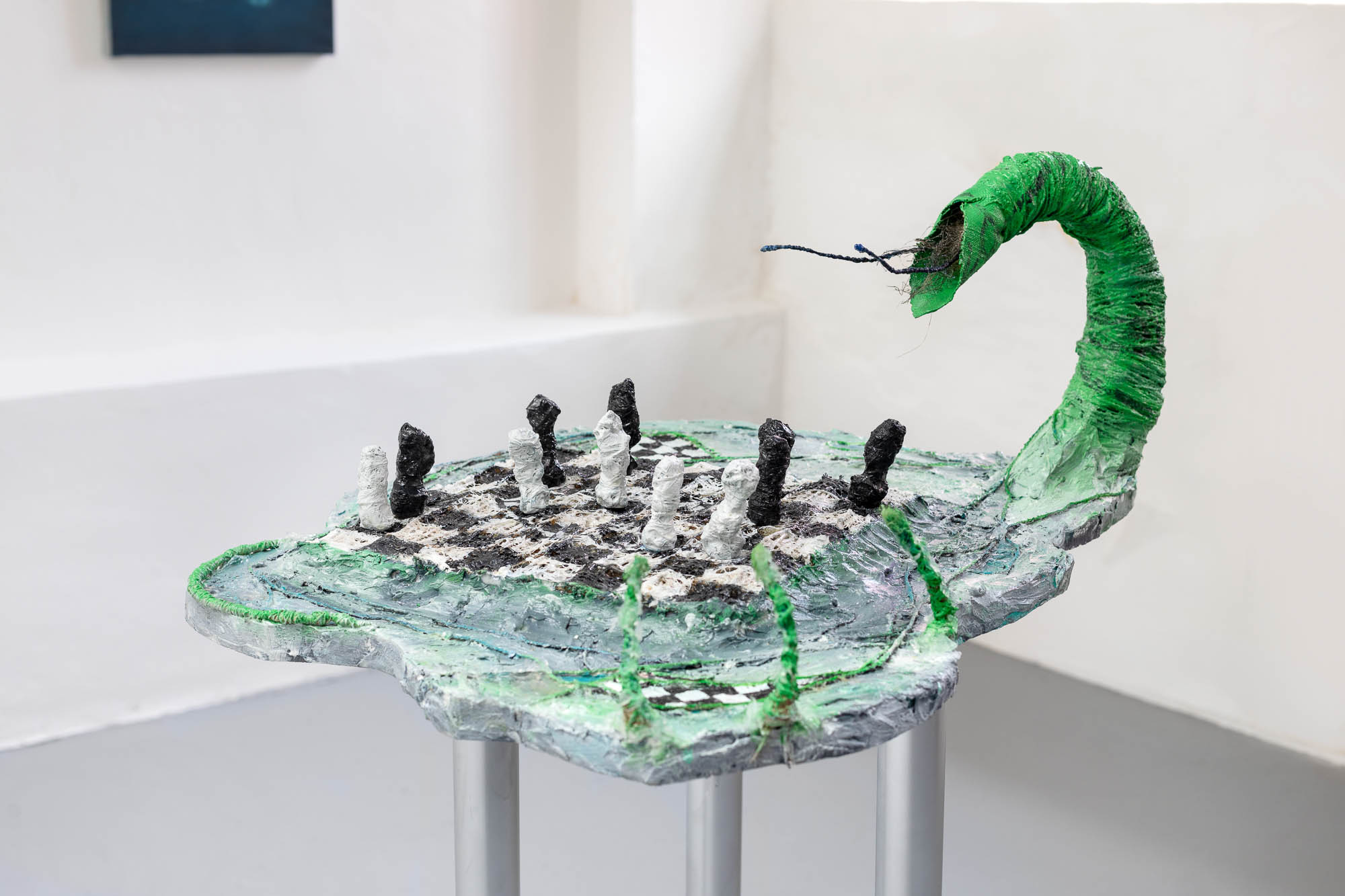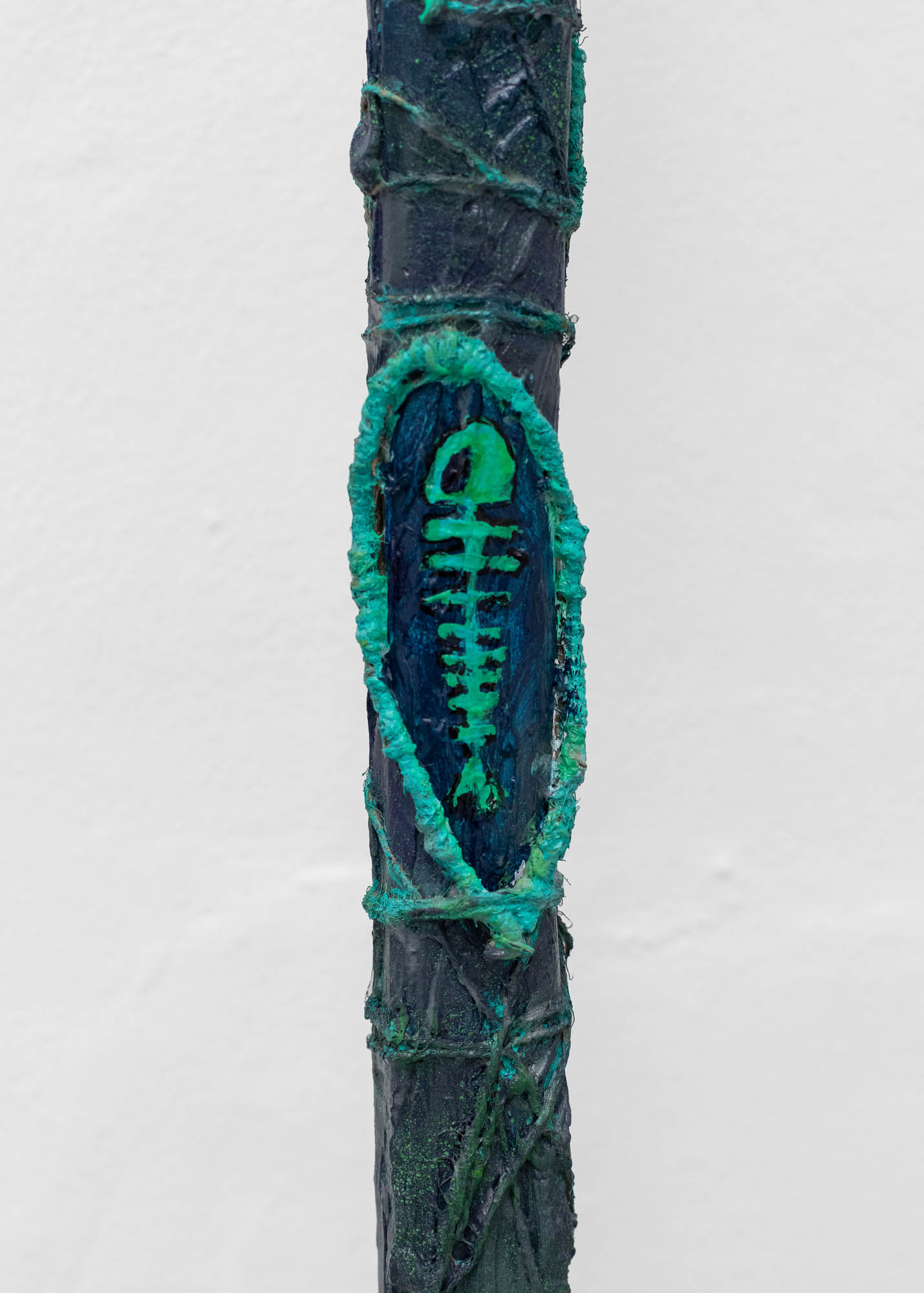Adam Žufníček – Fifth Dimension Descension
January 17, 2023 — February 7, 2023
Studio Prám, Prague, Czechia
– photo report on Kuba Paris
– phoro report on artalk.cz
Adam Žufníček's largest solo exhibition to date is the third part of the Ancient Aliens exhibition series, in which the artist explores various readings of history, mythology, science fiction, pseudoarchaeology and contemporary music. In form and content, Žufníček shapes his works using the underwater stylisation of sea-punk, while maintaining an experimental approach to painting. His speculations against the backdrop of a decaying ship's interior can thus be seen as a scenario: a visualisation of the subjective feeling of the impossibility of fully comprehending space-time, the contemporary compulsive search for spirituality and the uncertainty that abounds in our post-truth era.
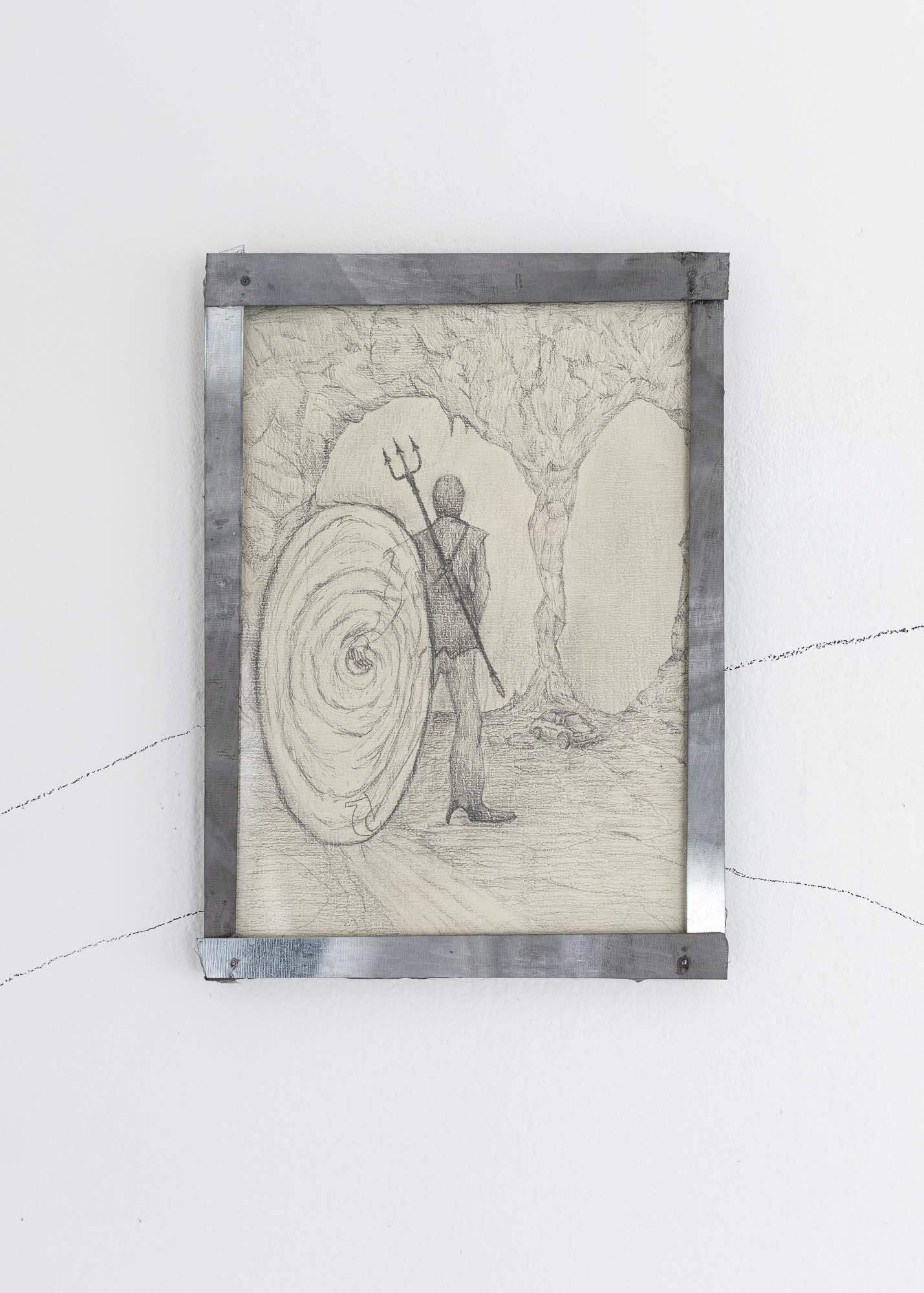
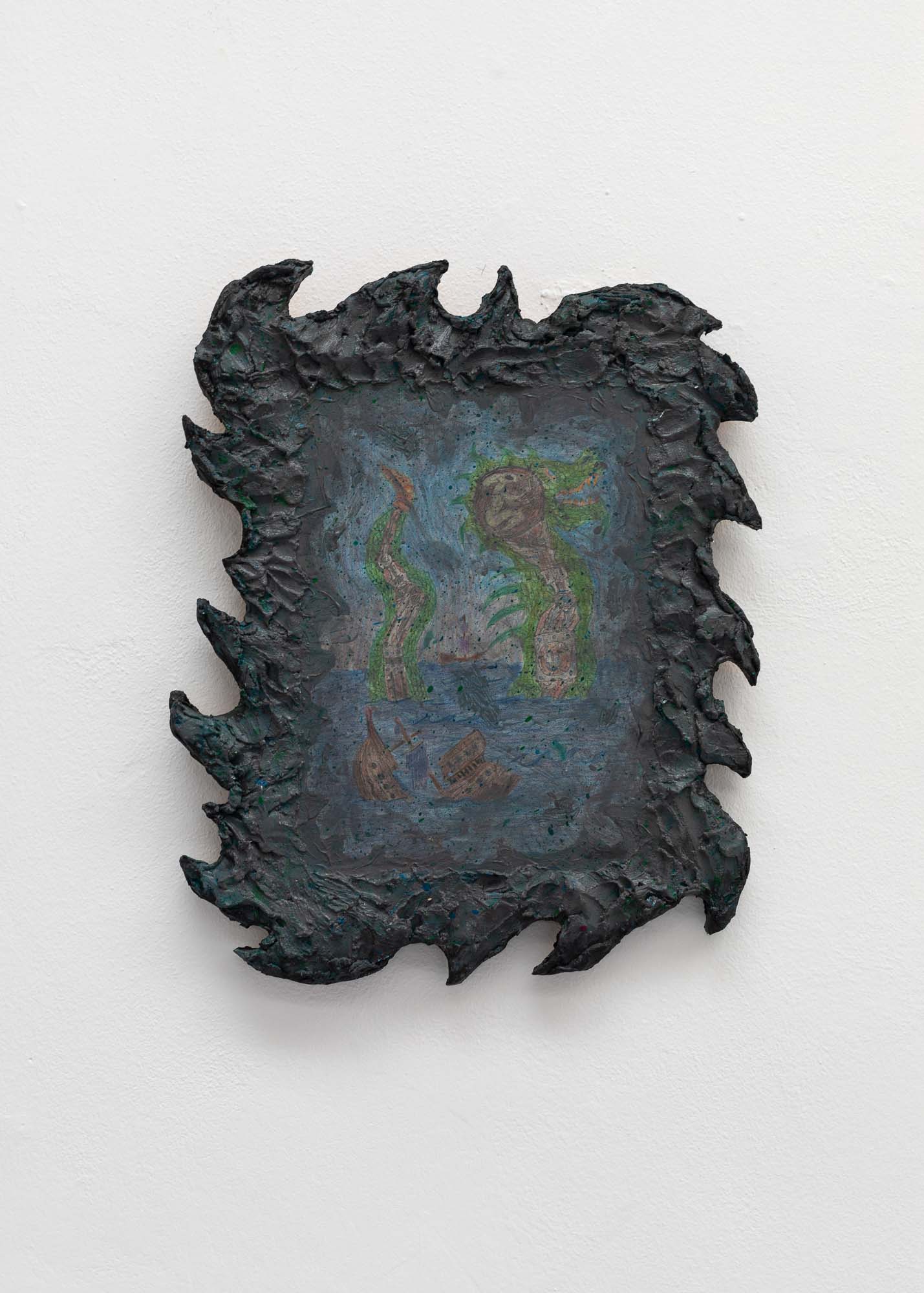
Fifth dimension descension
End of the road, I feel it coming up
It's kicking on my door
I feel it kicking
Total eclipsing, same messengers, same messages
(Exceler by Woesum, album Blue Summer)
In the third episode of the exhibition series Ancient Aliens, Adam Žufníček develops into eerie extremes a world in which a non-human, independent, and technologically advanced colony prospers in the murky depths of the ocean. From cliché green men and flying saucers, the artist has progressed on to a plot device that was once typical of science fiction literature – collective consciousness (also known as the hive mind). The term collective consciousness describes the manner in which a collectively unified consciousness emerges through the suppression of the free will of individuals. In Žufníček’s case, it is the underwater super-empire, with the difference that its power extends beyond the confines of its own species, affecting the consciousness of the human population. If, beyond the usual four dimensions of space and time, there also exists a fifth dimension of full reality, the dimension of the spirit, then Ancient Aliens: Fifth Dimension Descension projects the artist’s vision of how gaining control of such a dimension might look like outside the usual interpretations of spirituality.
The narrative of the Studio Prám project thus moves freely from the spooky archaeology ideas of Erich von Däniken about ancient astronauts to the second best known pioneer of this pseudo-science, Graham Hancock. According to Hancock’s theories, contact with ancient civilisations was established by survivors from a lost, highly developed pre-historical empire. This lost territory was to be the mythical Atlantis – today’s Antarctica, according to the pole shift hypothesis. This new series of meaning-saturated works introduces to the spectator (as is true of all of Žufníček’s works to date) a broadly diversified and eccentric medley of approaches in terms of his own interpretations of history, mythology, science fiction, pseudo-archaeology, or contemporary music. In the artist’s conception, however, what is at stake is not confirming or debunking a particular theory, but rather capturing the potential through which our current compulsive search for spirituality can be expressed. The artist also depicts – in a playful, sometimes psychedelic manner – the uncertainty that abounds in our post-truth age.
If ancient sailors called a fifth of the surface of the Earth, today’s Atlantic Ocean, Mare tenebrarum (the dark sea; due to its inaccessibility), we can follow the pioneers of pseudo-archaeology in asking the following “Reddit-style” set of questions: Is there a reason why we have tools to study more of the surface of Mars or the Moon than our own Earth? Is it possible that the widespread fear of deep bodies of water, or rather of what lives or threatens us in the deep, thalassophobia, is merely the result of externally directed parapsychological activity by a community that wishes to remain hidden? Are the gates to this empire the giant migratory black ocean vortexes – the mathematical equivalents of a time-space rift? Is this a threat, or salvation? And, finally: Are the only ones to suspect anything about this phenomenon those who have their own compasses to this fifth dimension?
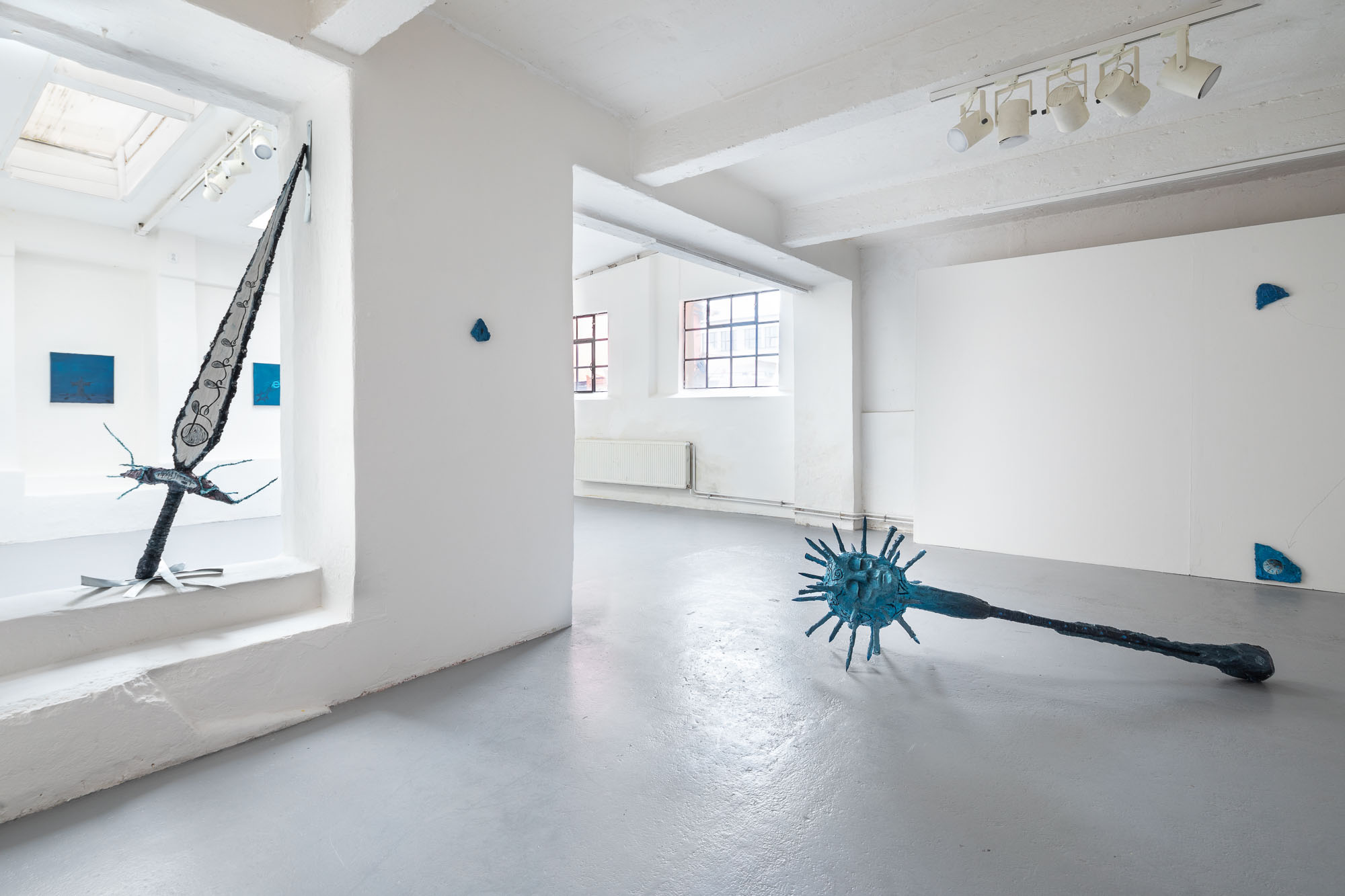
Adam Žufníček (born 1999) studies in the painting studio led by Patricie Fexová and Veronika Vlková at the Faculty of Fine Arts at the Brno Institute of Technology and is currently on an exchange in the video studio at the same institution. He recently spent a year studying at the Bauhaus in Weimar. For his exhibition at Studio Prám, he shaped the form and content of his works under the influence of a subaquatic sea-punk stylisation on the background of contemporary pop-culture narratives, whilst still maintaining an experimental approach to painting. This is present in the draughtsmanly objects in over-life-size, a series of paintings making use of nautical shapes, surreal drawings in rural frames, and a large-scale map referencing 16th-century maps by cartographers such as Oronce Finé and Piri Reis. A site-specific installation of a chess table in which a set of pieces represents the human race culminates the emphasis on folkloric, organic handcraft that stands out in dialogue with cold, techno-industrial metal. This difference is heightened by the selection of innovatively conceived traditional materials – wood, string, hemp thread, lacquer, putty, and paint. In Žufníček’s conception, the haptic character of the exhibited “artefacts” is in balance with a perceptual approach to the colour blue. This deviates from the usual interpretations of blue as a calm colour, shifting it towards playful bio-horror terrors, thus challenging the value of both the depicted and the absent. Žufníček’s speculation on the background of a notional crumbling ship interior can thus be perceived as a script: a visualisation of the subjective feeling of the impossibility of fully understanding space-time, which the artist fills with his own ideas and notions of imperfectly explored new worlds and their fifth dimensions.
